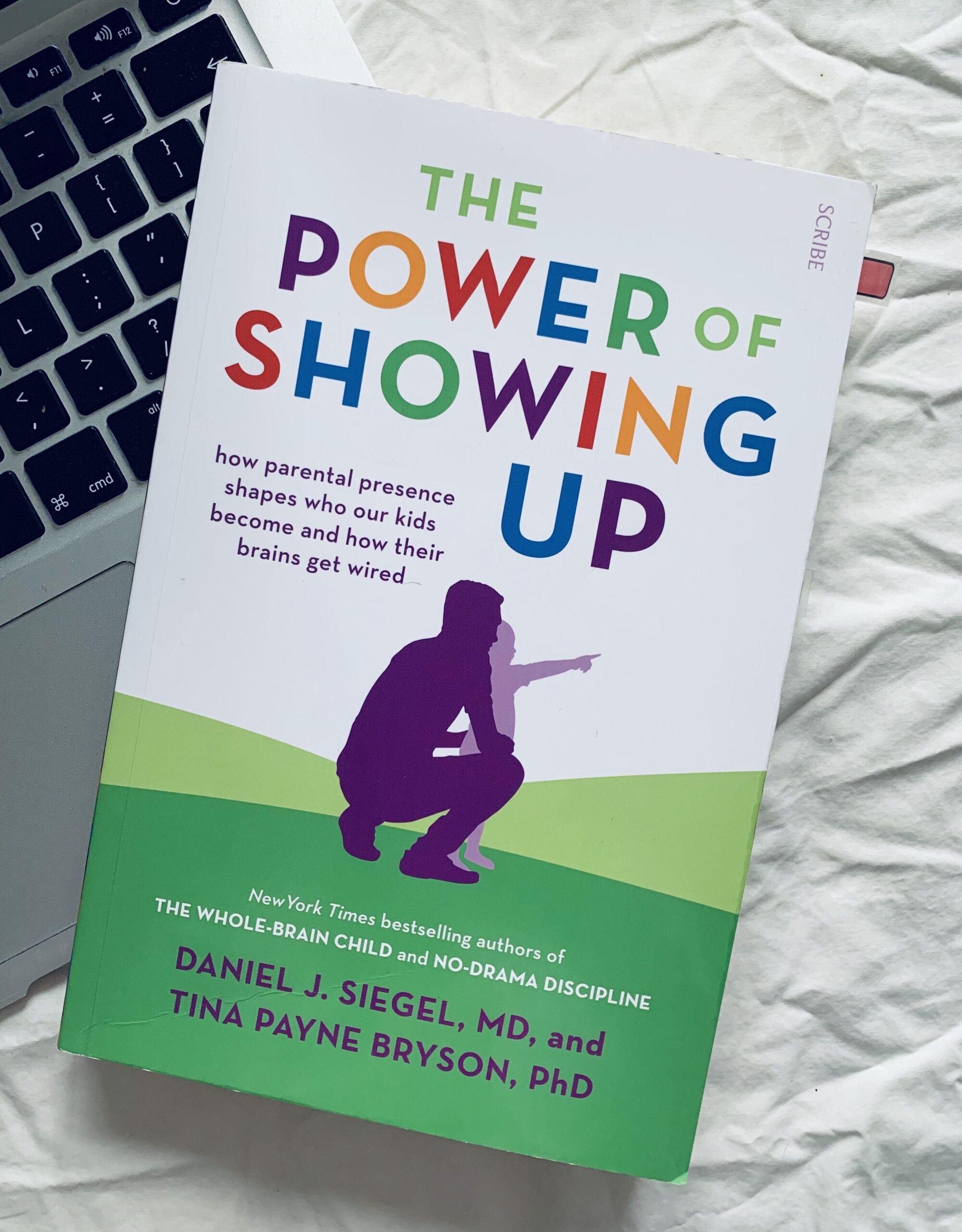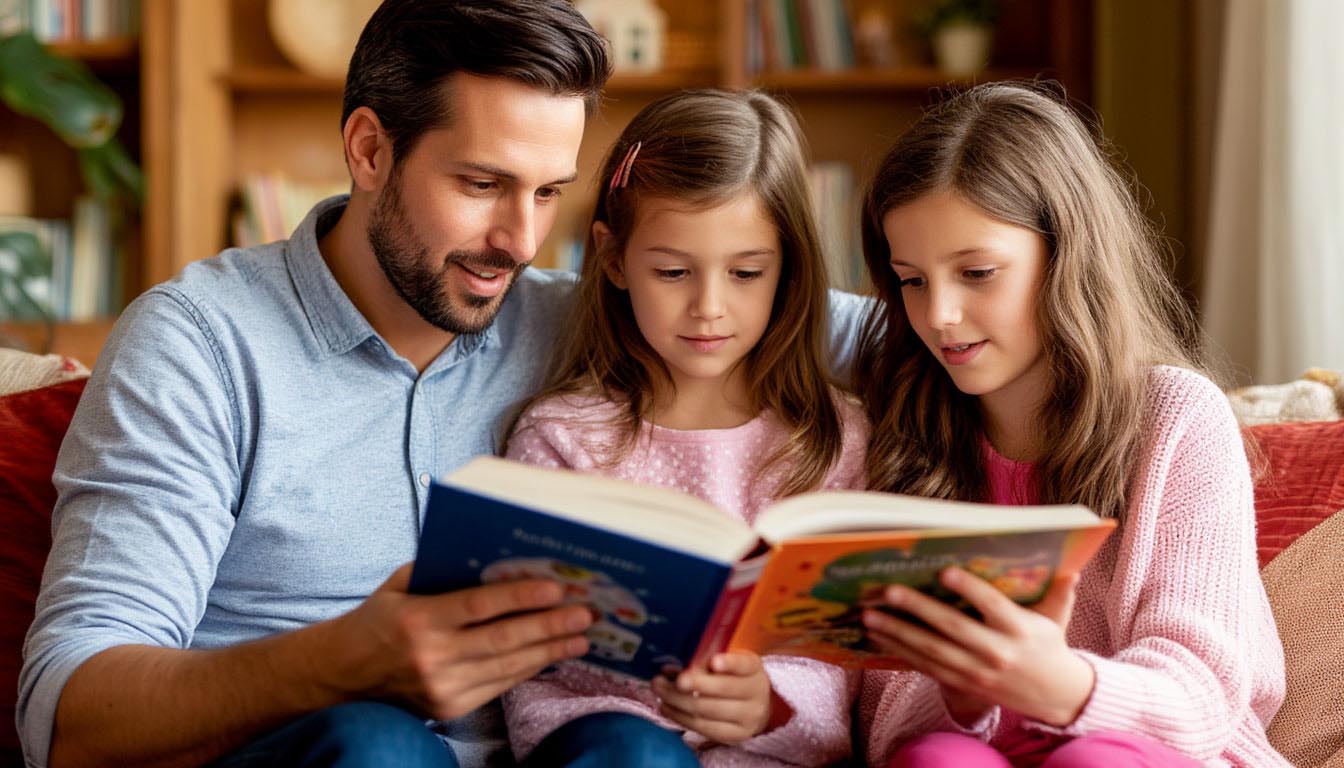Raising children comes with challenges, joys, and constant learning. Parenting books can provide guidance, reassurance, and evidence-based strategies for nurturing confident, emotionally intelligent kids. Below is a carefully curated selection of must-read books that offer expert insights on child development, discipline, and strengthening parent-child relationships.
Curated Selection of Must-Read Gentle Parenting Books
These books cover foundational parenting strategies, emotional development, and practical techniques to foster strong family connections.
The Whole-Brain Child by Daniel J. Siegel and Tina Payne Bryson
🧠 Key Focus: Brain development and emotional intelligence

This book explores how understanding a child’s brain can improve communication and behavior. Using neuroscience-backed techniques, it offers 12 actionable strategies to help parents guide emotional regulation, problem-solving, and self-awareness.
No Drama Discipline by Daniel J. Siegel and Tina Payne Bryson
🌿 Key Focus: Discipline as teaching, not punishment

Discipline should nurture a child’s emotional growth rather than rely on punishment. This book introduces the concept of connection-based discipline, showing parents how to set boundaries with kids while fostering understanding, cooperation, and empathy.
The Book You Wish Your Parents Had Read by Philippa Perry
💬 Key Focus: Emotional awareness and communication

Instead of focusing on parenting techniques, this book emphasizes the emotional patterns parents pass down to their children. It helps parents become more aware of their own upbringing’s impact on their parenting style, encouraging more conscious and compassionate interactions.
Calm Parents, Happy Kids by Dr. Laura Markham
🕊️ Key Focus: Stress-free parenting techniques

This book provides science-backed strategies to foster emotional resilience in children while helping parents manage their own emotions. Dr. Markham focuses on positive discipline, emotional regulation, and mindfulness-based parenting approaches.
Books Addressing Specific Parenting Challenges
For parents facing stress, discipline struggles, or behavioral challenges, these books offer expert strategies tailored to specific needs.
How to Stop Losing Your Sh*t with Your Kids by Dr. Carla Naumburg
🔥 Key Focus: Managing stress, frustration, and anger

Parenting can be overwhelming, and this book provides realistic, non-judgmental strategies to help parents stay calm, even in the most frustrating moments. With humor and science, it offers practical steps to break the cycle of stress-based reactions.
Raising a Secure Child by Kent Hoffman, Glen Cooper, and Bert Powell
🛡️ Key Focus: Secure attachment and emotional safety

This book introduces the Circle of Security framework, which helps parents create strong, trust-based relationships with their children. It emphasizes recognizing emotional needs, fostering security, and reducing anxiety-driven behaviors.
Raising a Child Who Can by Dr. Betty Lou Bettner and Dr. Amy Lew
💡 Key Focus: Building confidence and resilience

Using the “Crucial C’s” framework—Connect, Capable, Count, and Courage—this book teaches parents how to nurture a child’s self-worth and independence, equipping them with the skills to handle life’s challenges.
It’s OK Not to Share by Heather Shumaker
🚀 Key Focus: Rethinking traditional parenting norms

Challenging widely accepted parenting rules, this book encourages a child-led approach to social development, independence, and decision-making. It provides alternative perspectives on sharing, conflict resolution, and play-based learning.
Choosing the right parenting book depends on individual challenges and goals. Whether the focus is on discipline, emotional intelligence, or stress management, these books offer expert-backed guidance to support parents in raising happy, resilient children.
Parenting Books Inspired by Cultural Insights
Parenting approaches vary across cultures, often reflecting deeply rooted traditions and values. Books exploring these global perspectives provide valuable insights into raising independent, resilient, and emotionally balanced children.
How to Raise a Viking by Helen Russell
🛡️ Key Focus: Danish parenting techniques for confidence and well-being

Denmark consistently ranks among the happiest countries, and this book explores how Viking-inspired principles—play, independence, and emotional security—contribute to raising confident children. Helen Russell delves into Danish parenting methods that emphasize free play, outdoor activities, and a relaxed approach to discipline.
Hunt, Gather, Parent by Michaeleen Doucleff
🌿 Key Focus: Traditional parenting wisdom from Indigenous communities

Michaeleen Doucleff, a journalist and mother, traveled to Mexico, the Arctic, and Tanzania to learn how Indigenous families raise cooperative and self-reliant children. She highlights techniques such as natural consequences, teamwork, and emotional regulation—approaches that challenge many modern Western parenting norms.
Parenting Books on How To Manage Sibling Relationships
Navigating sibling dynamics can be challenging. These books offer practical strategies to foster cooperation, reduce jealousy, and create a harmonious family environment.
Siblings Without Rivalry by Adele Faber and Elaine Mazlish
🤝 Key Focus: Reducing competition and fostering strong sibling bonds

This book provides actionable strategies to help parents mediate conflicts, encourage teamwork, and prevent sibling comparisons. Through real-life examples, the authors illustrate how parents can create a home environment that nurtures mutual respect rather than rivalry.
Books For Raising Resilient and Thriving Children
Helping kids develop emotional intelligence, adaptability, and strong character traits prepares them for success in an unpredictable world. These books offer research-backed strategies to support resilience and well-being.
Thrivers by Michele Borba
🚀 Key Focus: Seven essential skills for long-term success

Drawing from extensive research, Michele Borba identifies seven character strengths—self-confidence, perseverance, empathy, self-control, integrity, curiosity, and optimism—that contribute to a child’s ability to thrive. She provides practical advice for integrating these traits into everyday parenting.
The Power of Showing Up by Daniel J. Siegel and Tina Payne Bryson
💙 Key Focus: The impact of parental presence on emotional development

This book explores how being consistently available—emotionally and physically—shapes a child’s cognitive and social skills. Siegel and Bryson break down the Four S’s of Secure Attachment—Safe, Seen, Soothed, and Secure—and demonstrate how parents can foster lifelong resilience through simple yet powerful interactions.
Choosing the Right Gentle Parenting Book for Your Needs
With so many voices in the child development world, finding the right guide can feel overwhelming. The goal isn’t just to find a popular book, but to find the right one for your family’s unique situation. Whether you’re exploring a gentle parenting book for the first time or seeking an attachment book to deepen your connection, your choice should align with your core values and address your specific challenges.
Choosing a book is about finding a new perspective that resonates with you—one that supports parenting with empathy and helps you raise calmer, more connected children.
A Quick Guide to Selecting Your Next Read
Selecting the right book involves more than just picking a bestseller. A new approach that works for one family might not suit another. Consider these factors to find a book that truly speaks to your needs.
| Factors to Consider | What to Look For | Examples & Keywords |
| Philosophy | Does the author’s core philosophy match your own? Look for approaches that feel authentic to you, whether they are science-based, tradition-inspired, or focus on simplicity parenting. | • Neuroscience-based: The Whole-Brain Child by Daniel Siegel • Connection-focused: No-Drama Discipline • Gentle Parenting: Any gentle-parenting book that avoids authoritarian tactics. |
| Child’s Age & Stage | Is the advice relevant to your child’s current developmental stage? Strategies for toddlers differ greatly from those for teenagers. | • Toddlers/Preschool: Books on potty training, tantrums, and gentle sleep. • School-Aged: Guides on homework, friendships, and building responsibility. • Teens: Resources on communication and independence. |
| Specific Challenges | Are you dealing with a particular issue? Target your search to find expert advice on that topic. | • Behavior: The Explosive Child by Ross Greene for chronically inflexible children. • Discipline: Books on gentle discipline to handle defiance or a meltdown. • Siblings: Siblings Without Rivalry by Joanna Faber and Julie King. |
| Author’s Expertise | Does the author have credentials or experience you trust? Look for child psychologists, developmental experts, or experienced parent educators. | • Clinical Psychologists: Dr. Laura Markham, Dr. Ross Greene. • Neuropsychiatrists: Dr. Daniel Siegel. • Parent Educators: Adele Faber & Elaine Mazlish. |
| Desired Outcomes | What are your main goals? Clarifying what you want to achieve will help you find a book with actionable steps toward that vision. | • Cooperation: Finding ways to help your kids will listen without yelling. • Resilience: Raising confident kids and secure kids. • Family Harmony: Learning to calm the chaos and become a family that is raising good humans. |
Putting Knowledge into Action: Applying What You’ve Learned
Reading a book is the first step; true change happens when you integrate its lessons into your daily life. It’s easy to feel inspired and then fall back into old habits. Here’s how to make these new strategies stick and truly empower your parenting.
- Start with One Small Change. Instead of overhauling your entire nurturing style overnight, pick one concept to practice. If you’re trying no-drama discipline, focus solely on connecting with your child before correcting their behavior. This small step can begin to calm the chaos.
- Take Notes and Reflect. Keep a journal to jot down key ideas. Ask yourself: “How can I apply this when my child has a meltdown?” or “What’s one way I can validate their feelings today?” Reflection turns passive reading into active learning.
- Discuss with a Partner. If you co-parent, getting on the same page is crucial. Share what you’re learning and decide together which strategies to try. A unified front makes any new approach much more effective.
- Observe and Adapt. No two children are the same. A technique that works for one may not work for another. Pay close attention to how your child responds. The goal of gentle-parenting is not to follow a rigid script but to respond with sensitivity to your child’s unique needs.
Practice Mindful Presence. Many of these books emphasize the importance of your own emotional state. Practicing mindfulness can help you stay centered during stressful moments, allowing you to respond thoughtfully instead of reacting impulsively. This is fundamental to raising good humans who feel seen and heard.


